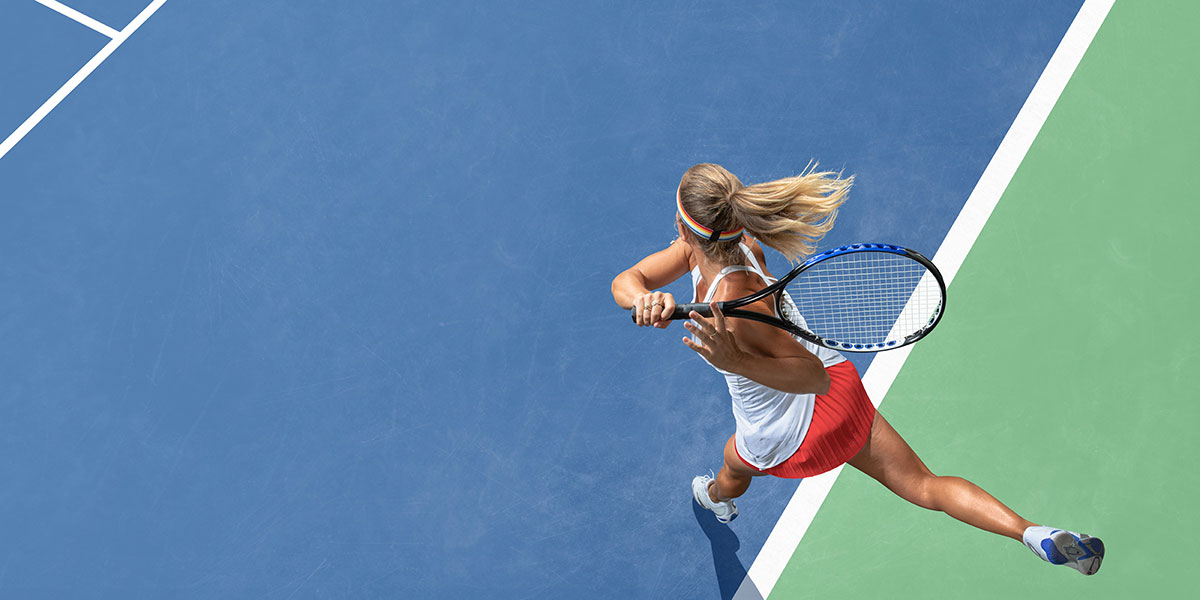Now that the weather is soon to be nice again, those softball games, golf outings, tennis matches and other outdoor activities are once again going to be part of your weekly recreational routine. But many of you have been nursing a sore shoulder, and it might be just the right time to get your shoulder “tuned up” so you’re not sidelined from the activities you’ve been waiting all winter to enjoy.
First, let’s talk a little about the shoulder itself. The shoulder is actually an amazing joint. It allows motion in all sorts of directions, and it has the power to throw balls, swing rackets and drive golf balls hundreds of yards. However, there is a catch: the shoulder is quite prone to irritation and injury. The unique anatomy that allows us to do all of these amazing feats also makes the shoulder a bit vulnerable.
As I tell my patients, there are three major pain generators in the shoulder:
- Rotator cuff – tear, tendonitis, bursitis or pinching (called impingement)
- Biceps tendon – tendonitis or tear of the biceps anchor (called a SLAP tear)
- Arthritis of the AC joint or shoulder joint itself
These are all structures that can become problematic, especially for us weekend warriors who put our shoulders to the test.
The rotator cuff is comprised of four muscles and tendons that surround the top of the humeral head (the ball) and hold it centered in the shoulder joint (the socket). The rotator cuff also helps your deltoid muscle when it comes to lifting your arm over your head. A tear may result suddenly from an injury or develop gradually over time because of repetitive activities. The rotator cuff tendons and bursa can also get inflamed, resulting in tendonitis or bursitis. Many patients develop a bone spur that rubs on the rotator cuff causing pinching (impingement) with subsequent inflammation or tearing. The biceps tendon attaches to an “o-ring” that surrounds the socket of the shoulder joint. This o-ring can pull away, resulting in a SLAP tear, or the biceps tendon itself can tear or become inflamed. The AC joint is the small joint in the top of the shoulder where the end of the collar bone meets the top of the scapula. It is a lightning rod for inflammation and arthritis, especially in young active individuals. Less commonly, arthritis can also affect the ball and socket of the shoulder joint.
Common signs and symptoms
- Recurrent pain in the shoulder and upper arm, particularly with overhead activities and movements like reaching quickly or throwing
- Pain at night that prevents you from sleeping on that side
- Muscle weakness, especially when attempting to lift the arm
- Catching and grating or cracking sounds that hurt when the arm is moved
- Shoulder stiffness and limitation of function
Treatment options
Treatment depends on your symptoms, physical exam findings, and the results of studies which may include x-rays and MRI. Treatment also depends on your age, occupation and activity level. In many cases, the initial treatment is nonsurgical and involves one or a combination of the following:
- Rest: If the problem is due in part to overuse, resting the shoulder may help. For those of you “addicted” to your athletic and recreational pursuits, this can often be the most challenging form of treatment.
- Non-steroidal anti-inflammatory medications, like ibuprofen, can often help control pain and reduce inflammation (I tell my patients that these medications work like pouring buckets of water on a campfire).
- Strengthening and stretching exercises as part of a physical therapy program are often very important in preventing symptoms from returning once the inflammation is under control.
- Corticosteroid injections can help reduce pain and inflammation, but cannot be repeated too many times because they can also weaken the tendon.
- Because corticosteroid injections have their limitations, we have actually been researching – and using – growth factors like platelet rich plasma (PRP) and stem cells that can be injected in the office or applied at the time of surgery to aid in tendon healing.
Minimally invasive tune ups
If you do have a shoulder problem that hasn’t responded to conservative treatment, don’t panic. We’re doing a lot of minimally invasive procedures, which can tune you up, and get you back in the game. Many of these surgeries can be done arthroscopically through poke incisions. For example, we can repair rotator cuff and SLAP tears, clean up arthritis and smooth bone spurs using these techniques. In more severe cases, open surgery through a formal incision is sometimes required to repair large tears or replace the shoulder joint itself.
The bottom line
The shoulder is certainly an amazing joint from a biomechanical perspective. However, its unique characteristics also make it prone to problems. Luckily, most of these problems can be handled with a simple “tune up,” but if your shoulder does happen to require a more extensive “engine overhaul,” our “garage” can handle that repair as well.
Dr. Joseph Guettler is an orthopedic surgeon who specializes in sports medicine, as well as surgery of the knee, shoulder and elbow. He is also a proud member of the MOS team.

